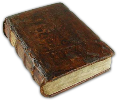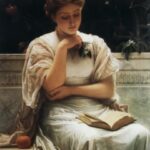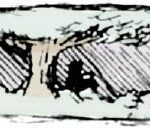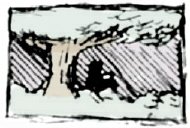
 This week’s writer links begin with two approaches to critique groups: Becky Levine tells us what to expect from her critiques, while Brandi Guthrie at Cursings and Musings discusses what advice to take and what not to take.
This week’s writer links begin with two approaches to critique groups: Becky Levine tells us what to expect from her critiques, while Brandi Guthrie at Cursings and Musings discusses what advice to take and what not to take.
Lydia Sharp at The Sharp Angle explains No. 11 of the 52 Qualities of the Prosperous Writer: Good Health. Also, kudos to Lydia for pointing the way to this cool writing advice video on YouTube.
On Not Being Able To Write writer ellanbethia lays out her rejection-letter goals, and Juliette Wade at Talk to YoUniverse discusses choosing the right narrator.
Les Edgerton (to whom I introduced you in my analysis of Jeremy) takes a few deep dives into: Southern Stereotypes, Censorship and Why I Love Charles Bukowski, and his new-found talent as a Goldfish Whisperer.
Finally, Jade Smith serves up a creepy piece of flash fiction in “pawnshop visitor.” (I’m following her capitalization convention here.)
Enjoy! And, Happy Give-Me-Liberty Day!


 Those of you who have bookmarked or subscribed to this blog for your love of the Age of Sail likely already know this … but just in case: the State Museum of South Carolina has just opened an exhibit on “
Those of you who have bookmarked or subscribed to this blog for your love of the Age of Sail likely already know this … but just in case: the State Museum of South Carolina has just opened an exhibit on “
 Topping the list of this week’s publishing links is Kate Harding writing for Salon.com on the (perceived?)
Topping the list of this week’s publishing links is Kate Harding writing for Salon.com on the (perceived?) 
 From The Clergyman’s Almanack (1815) as quoted in America and her Almanacs : Wit, Wisdom, and Weather 1639-1970 by Robb Sagendorph:
From The Clergyman’s Almanack (1815) as quoted in America and her Almanacs : Wit, Wisdom, and Weather 1639-1970 by Robb Sagendorph:

 As one of my regular agent blog reads once stated, lack of a query response is the same as a form rejection. So, as I absorb this advice and rack up my next round of queries, let’s check out some more good advice from our favorite literary agents.
As one of my regular agent blog reads once stated, lack of a query response is the same as a form rejection. So, as I absorb this advice and rack up my next round of queries, let’s check out some more good advice from our favorite literary agents. WHITE BIRD
WHITE BIRD
